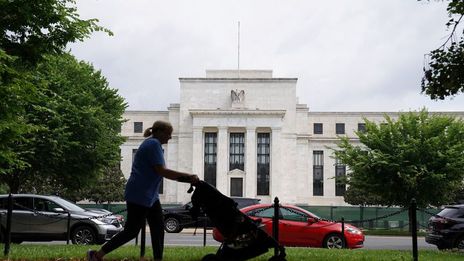Oil slid after OPEC reported a rise in global crude stocks and a surprise output jump from its biggest member, Saudi Arabia. Even though OPEC made an upward revision to its global demand outlook, signs of even modestly higher Saudi output flustered investors.
U.S. crude prices
"None of the data you’re getting is good if you’re trying to increase (crude) prices. It doesn’t look like oil supply is diminishing," said Kim Forrest, senior equity research analyst at Fort Pitt Capital Group in Pittsburgh.
MSCI's all-country world stock index <.MIWD00000PUS> fell 0.4 percent.
On Wall Street, major equity indexes fell, with the energy sector <.SPNY> declining 1.1 percent.
The Dow Jones Industrial Average <.DJI> fell 44.11 points, or 0.21 percent, to 20,837.37, the S&P 500 <.SPX> lost 8.02 points, or 0.34 percent, to 2,365.45 and the Nasdaq Composite <.IXIC> dropped 18.97 points, or 0.32 percent, to 5,856.82.
Shares of U.S. hospitals and health insurers fell after a forecast that 14 million Americans would lose medical insurance by next year under a Republican plan to dismantle the Affordable Care Act, known as Obamacare.
With the Fed widely expected to raise rates, the focus of Wednesday's decision will be on other aspects, including the pace of future hikes.
“People tomorrow are going to be looking at what the Fed says after the meeting, what the rationale is for their move, and what they say about their balance sheet,” said Bucky Hellwig, senior vice president at BB&T Wealth Management in Birmingham, Alabama.
"They have a balance sheet full of bonds they bought during (quantitative easing) and they’re going to start getting rid of them. Investors are wondering, what will be the process," Hellwig said.
Investors also are assessing the potential outcome and impact of a gathering of G20 finance chiefs, U.S. President Donald Trump's first budget and a tense election in the Netherlands.
After four sessions of gains, the pan-European STOXX 600 share index <.STOXX> shed 0.3 percent, as banking <.SX7P> and energy <.SXEP> shares fell.
British shares edged lower, weighed down by banking stocks as Britain gets set to start negotiating its departure from the European Union.
The dollar rose 0.4 percent against a basket of key currencies <.DXY>, bolstered by the widely expected U.S. rate increase and by political risks in Europe as Dutch elections get under way.
The euro
U.S. long-dated and benchmark Treasury yields edged lower after the drop in oil prices was viewed as a deflationary sign, but the drop in yields was limited as investors awaited the Fed's policy statement.
Prices on benchmark 10-year Treasuries
(Additional reporting by Rodrigo Campos in New York and Nigel Stephenson in London; Editing by Bernadette Baum and Nick Zieminski)
By Lewis Krauskopf





















